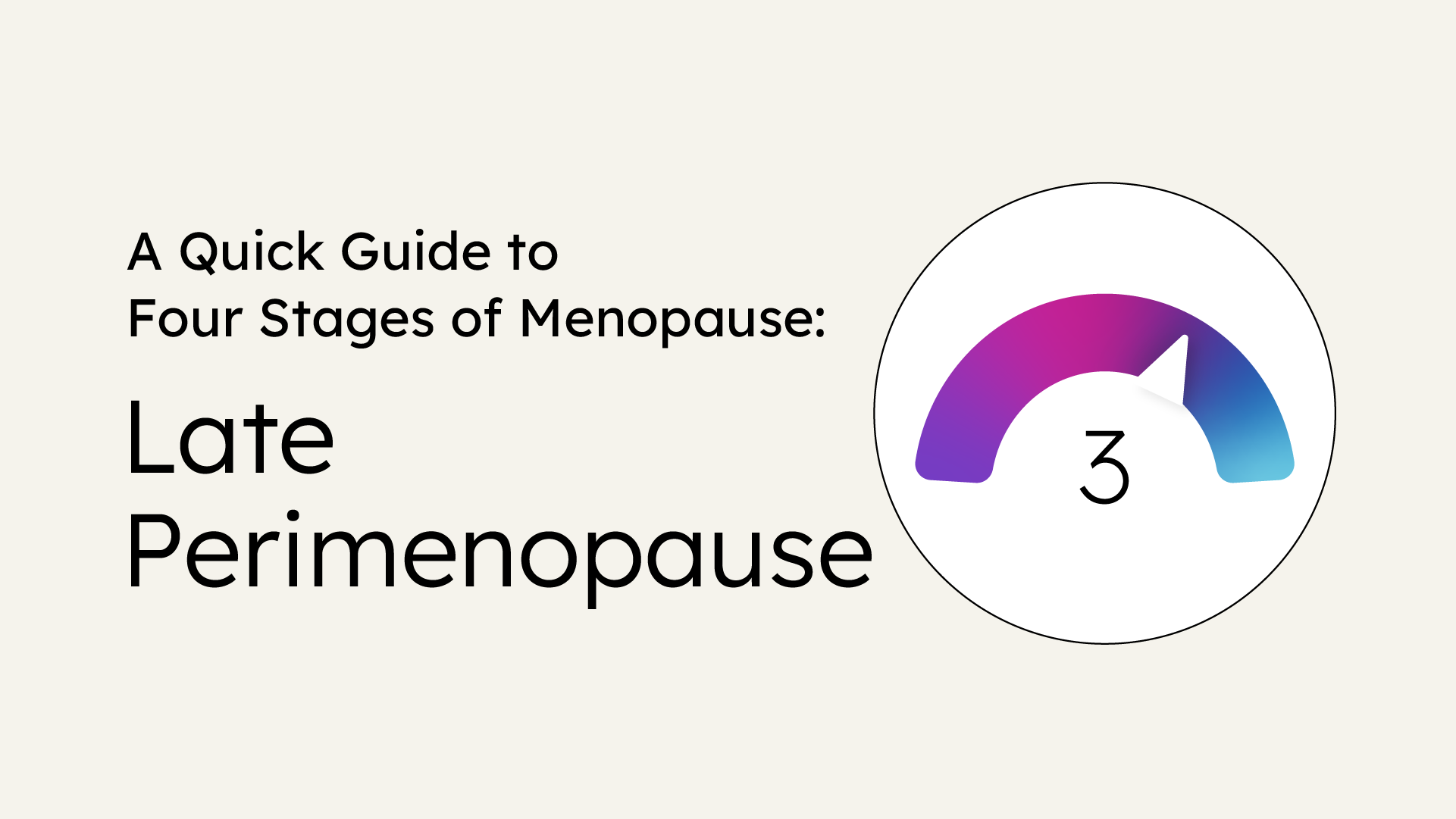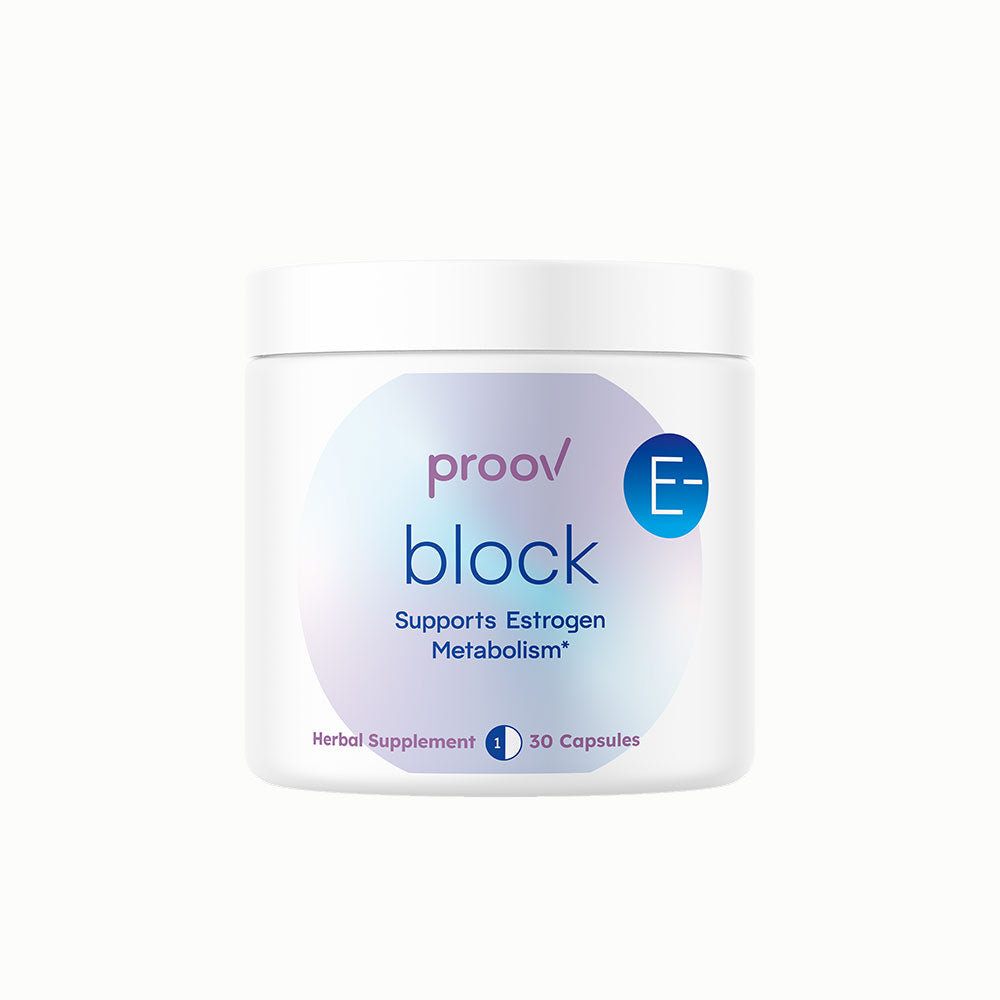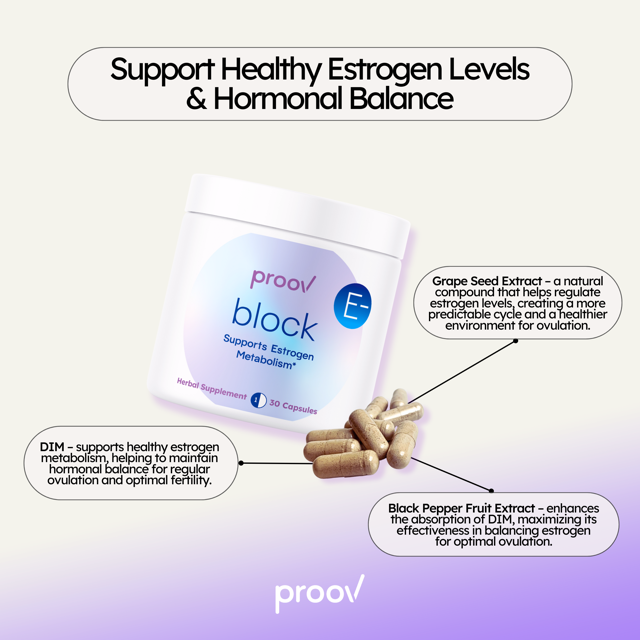Hang in there! You’re in the hormonal home stretch!
Welcome to late perimenopause, the stage where the hormonal shifts become more pronounced and can feel more disruptive. But don't worry, everyone on the Proov team is here to guide you through this phase with the information and support you need to manage your symptoms and regain control.
What is late perimenopause?
Late perimenopause is the stage where the transition towards menopause intensifies. Hormonal fluctuations become more significant as your body works harder to try to compensate as your ovaries produce less and less estrogen, and menstrual cycles can become very irregular or even skip months entirely. This stage typically occurs a few years before menopause, usually in your late 40s or early 50s.
Where does late perimenopause fall within the perimenopause journey?
Late perimenopause is the final phase before reaching menopause. This stage can last from a few months to several years, culminating in menopause—the point when you've gone 12 consecutive months without a menstrual period.
What hormone changes are happening and why?
During late perimenopause, estrogen levels continue to decline, and progesterone production drops significantly. These hormonal changes lead to increased levels of FSH (follicle-stimulating hormone) as your body tries to stimulate the ovaries. The fluctuations in these hormones are responsible for the intensifying symptoms experienced during this stage.
What symptoms are typical for this stage?
In late perimenopause, you might notice:
- Increased menstrual irregularity: Periods become very irregular, with some cycles skipped entirely.
- More frequent and intense hot flashes and night sweats: These can disrupt sleep and daily activities.
- Worsening sleep disturbances: Difficulty falling or staying asleep can lead to chronic fatigue.
- Mood swings and irritability: Hormonal fluctuations can cause emotional ups and downs.
- Vaginal dryness and discomfort: Reduced estrogen levels can lead to dryness and discomfort during intercourse.
- Decreased libido: Changes in hormone levels can affect sexual desire.
How does this stage affect my cycle?
In late perimenopause, menstrual cycles become highly unpredictable. You might experience months without a period followed by a return of irregular bleeding. The flow can vary widely, from light spotting to heavy bleeding. This irregularity is a key indicator that you're in the late stages of perimenopause.
What stage is ahead? What can I expect?
The next stage after late perimenopause is menopause. Menopause is officially reached when you've gone 12 consecutive months without a menstrual period. Once in menopause, the intense hormonal fluctuations will subside, but you may still experience some lingering symptoms as your body adjusts to its new hormonal baseline.
What signs should I expect to see when transitioning into the next stage?
As you transition from late perimenopause to menopause, you might notice:
- Complete cessation of menstrual periods: After months of irregular cycles, your periods will stop altogether.
- Reduction in the frequency of hot flashes and night sweats: These symptoms may start to diminish as your body adjusts.
- Stabilization of mood swings: While some emotional symptoms may persist, they often become less intense.
- Continued vaginal dryness and discomfort: These symptoms can persist into menopause and beyond.
Late perimenopause may bring more intense symptoms, but it also brings the promise of relief as you approach menopause — it’s the storm before the calm.
Testing regularly and recognizing symptoms early allows you to seek the right information and support to manage your transitions from stage to stage and symptom to symptom smoothly. Accurate testing, reliable information, and community support are your allies in navigating this stage. Remember, you’re not alone! Proov is here to support you every step of the way to help you understand and manage these changes so you can navigate this stage with confidence and ease.












